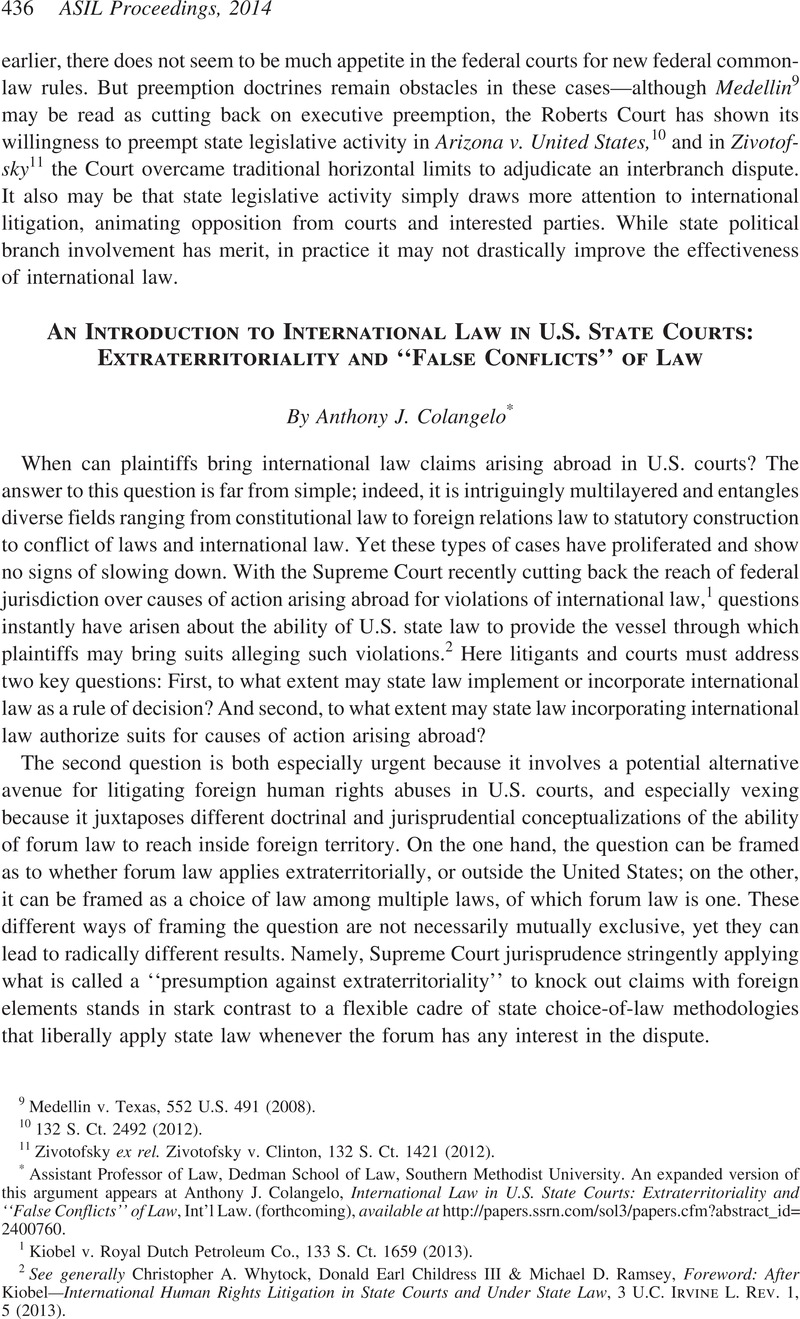No CrossRef data available.
Article contents
An Introduction to International Law in U.S. State Courts: Extraterritoriality and “False Conflicts” of Law
Published online by Cambridge University Press: 20 January 2017
Abstract

- Type
- State Law Litigation of International Norms
- Information
- Copyright
- Copyright © American Society of International Law 2015
References
1 Kiobel v. Royal Dutch Petroleum Co., 133 S. Ct. 1659 (2013).
2 See generally Whytock, Christopher A., Childress, Donald Earl III & Ramsey, Michael D., Foreword: After Kiobel—International Human Rights Litigation in State Courts and Under State Law , 3 U.C. Irvine L. Rev. 1, 5 (2013)Google Scholar.
3 See Am. Ins. Ass’n v. Garamendi, 539 U.S. 396, 413–14 (2003); Crosby v. Nat’l Foreign Trade Council, 530 U.S. 363, 373 (2000) (invalidating Massachusetts statute for obstructing the foreign policy objectives of the federal government).
4 See Colangelo, supra note *.
5 133 S. Ct. at 1665 (2013).
6 Id. at 1666 (quoting Cuba R. Co. v. Crosby, 222 U.S. 473, 479 (1912)).
7 Cuba, 222 U.S. at 479.
8 Id. at 478.
9 Id.; see also Linder v. Portocarrero, 963 F.2d 332, 336 (11th Cir. 1992) (“All of the authorities agree that torture and summary execution—the torture and killing of wounded non-combatant civilians—are acts that are viewed with universal abhorrence.”).


